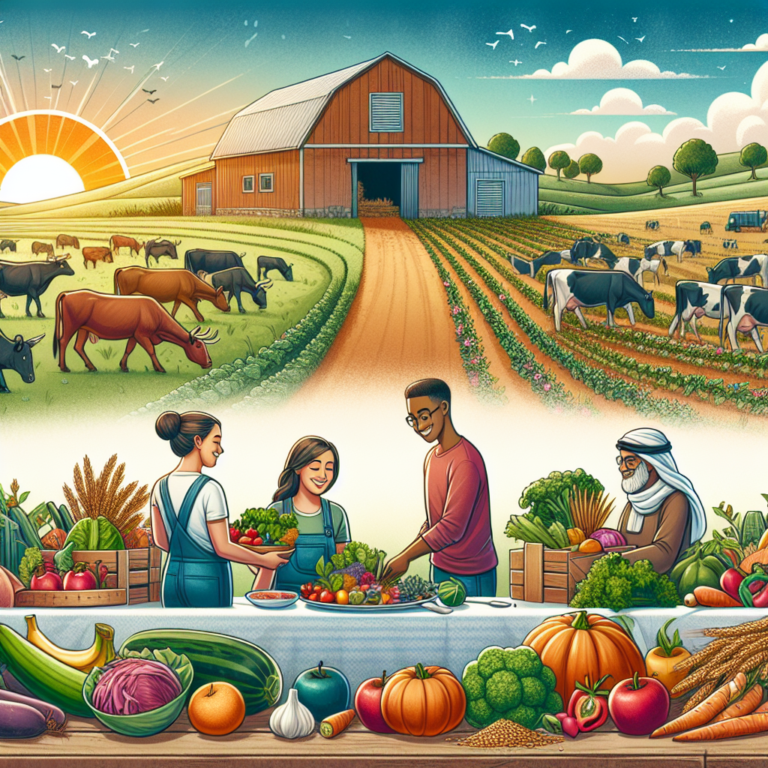Organic livestock farming has been gaining popularity in recent years as more consumers are becoming conscious of what they put into their bodies. This growing trend of farm-to-table dining emphasizes the importance of knowing where food comes from and promoting sustainable agricultural practices.
Organic livestock farming is a method of raising animals that follows strict guidelines set by organic certification organizations. These guidelines require the animals to be raised in a way that promotes natural behaviors, such as grazing on pasture, and prohibits the use of antibiotics, hormones, and genetically modified organisms.
One of the key benefits of organic livestock farming is the improved welfare of the animals. By allowing them to graze on pasture and providing them with a natural diet, farmers are able to raise healthier and happier animals. This not only benefits the animals themselves, but also results in higher quality meat and dairy products for consumers.
In addition to animal welfare, organic livestock farming also has a positive impact on the environment. By avoiding the use of synthetic chemicals and fertilizers, organic farmers help to protect the soil, water, and air from pollution. They also contribute to the overall health of the ecosystem by promoting biodiversity and supporting natural habitats for wildlife.
Another important aspect of organic livestock farming is the reduction of food miles. By sourcing food locally, consumers can support small-scale farmers in their communities and reduce the carbon footprint of their meals. This farm-to-table approach allows consumers to directly connect with the people who grow their food and build a more sustainable food system.
As the demand for organic and locally sourced food continues to grow, more farmers are choosing to adopt organic practices and sell their products directly to consumers through farmers markets, community-supported agriculture programs, and farm-to-table restaurants. This shift towards a more sustainable and transparent food system is not only good for the environment and the animals, but also for the health and well-being of consumers.
In conclusion, the trend of organic livestock farming is a positive development in the food industry that promotes animal welfare, environmental sustainability, and community support. By choosing to support organic farmers and eat locally sourced food, consumers can make a positive impact on their health and the health of the planet. From farm to table, organic livestock farming is a trend worth celebrating and supporting.
